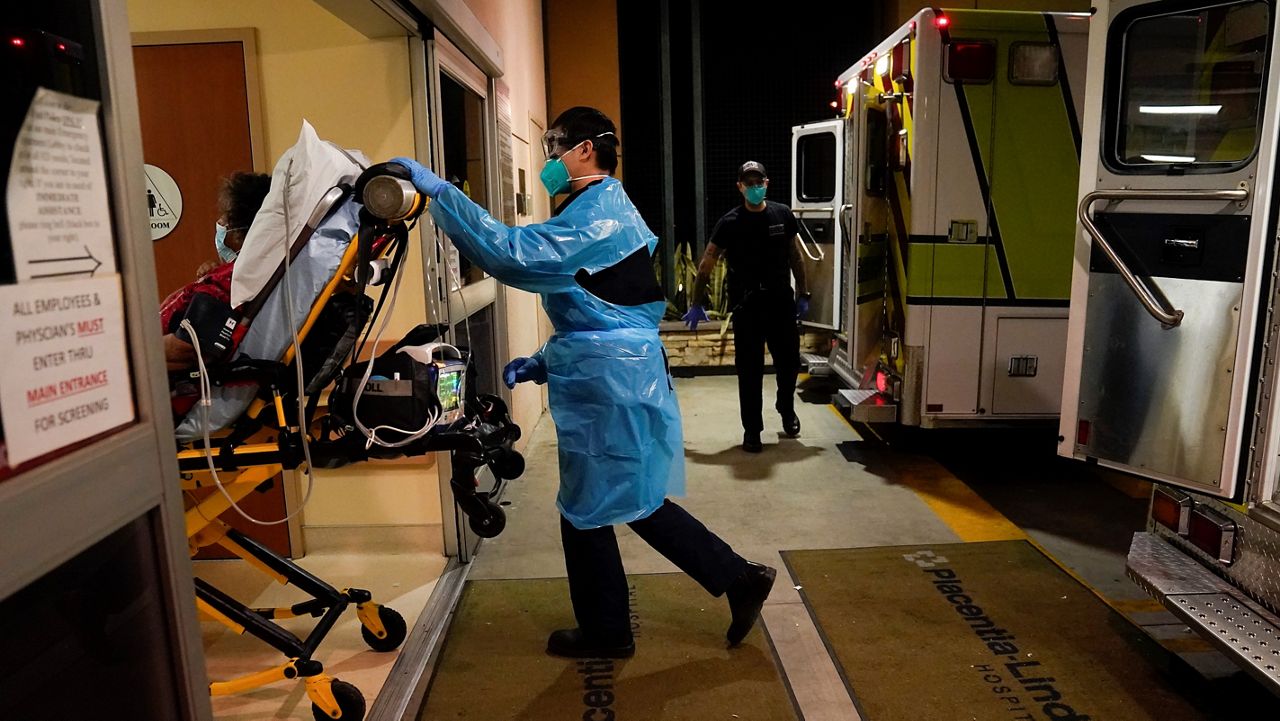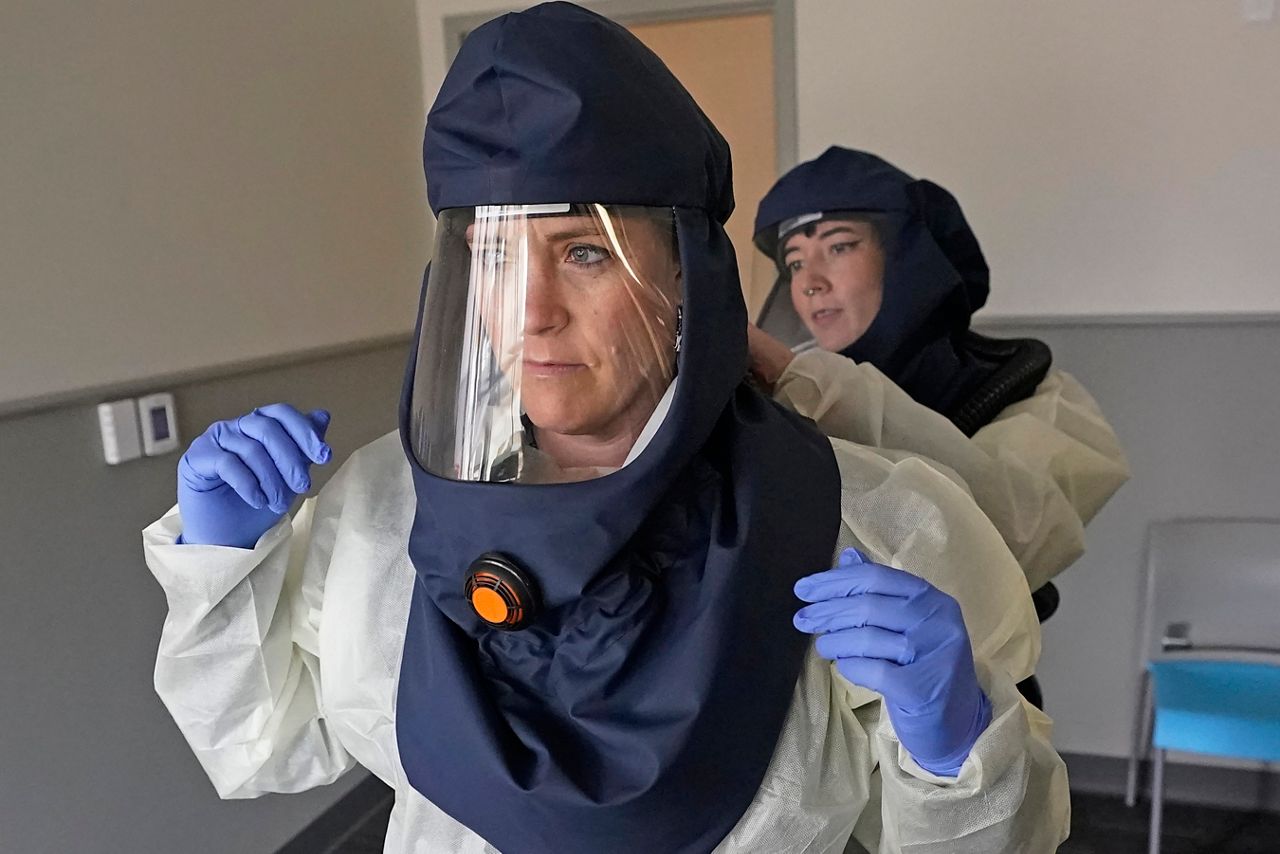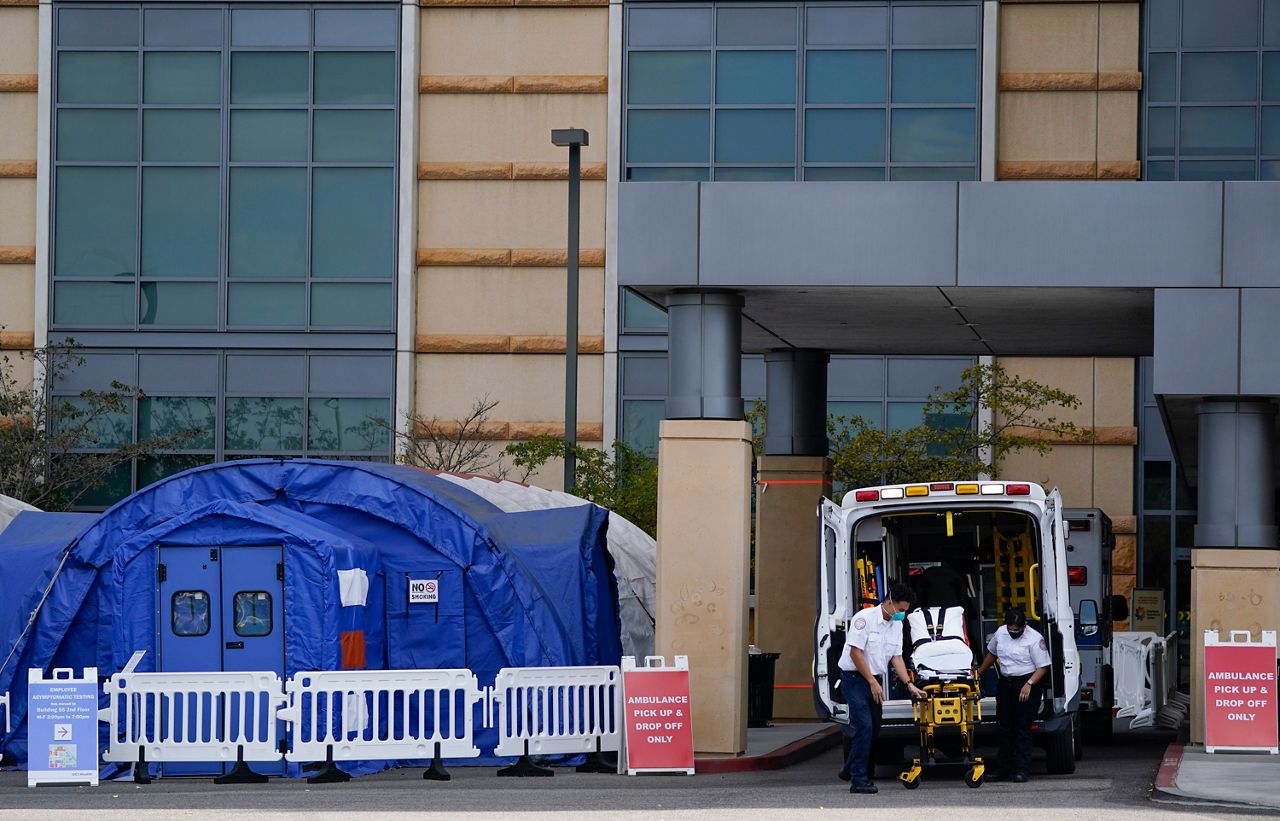MILWAUKEE — The COVID-19 public health emergency will officially come to an end this week, but a Wisconsin EMT said things have already shifted.
COVID calls
The pandemic changed how paramedics lived their everyday lives, and how they worked with patients.
Noelle Gross, a paramedic supervisor for Bell Ambulance in Milwaukee, said the cardiac monitor is one of the most important tools paramedics have when treating COVID patients.
“Just because respiratory systems and cardiac systems can kind of interlock or intertwine a lot, therefore, with COVID being mostly respiratory, we would always put our COVID patients on the cardiac monitor,” said Gross.

Initially, the COVID-19 pandemic led to a drop in calls that Bell Ambulance EMTs responded to.
Gross said she believes this was because people didn’t want to go out and risk getting — or spreading — the virus; however, that quickly changed.
“As the virus started to progress, and we learned more about it, then our call volumes started to uptick because there were so many different symptoms associated with the virus. A lot of calls did get coded as COVID calls just to air on the side of caution,” said Gross.
Being cautious also meant Gross and her fellow EMTs dawned hazmat suits to protect themselves from COVID for quite some time. EMTs and other frontline workers faced many long days during the height of the pandemic.

“Seeing all of these individuals working through the pandemic while everyone was at home quarantining — at home and they were safe — I think it really changed a lot of perspective[s],” she said. “A lot of people are a lot more grateful and just appreciative of the services that first responders and frontline workers do.”
Change on the horizon
While the “public health emergency” will be officially declared over by the U.S. Department of Health and Human Services on Thursday, Gross said it hasn’t felt like a pandemic for some time.
“The past six to eight months I’ve seen a lot fewer COVID patients or COVID-related calls and in the time frame, it really feels like we are starting to get back to where we were pre-COVID,” said Gross.

And that’s how Gross said she would like it to stay.


